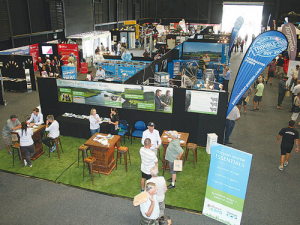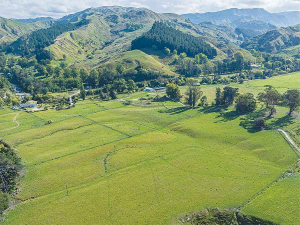Waikato Regional Council’s ‘Effluent Expo’ at the Claudelands Event Centre in Hamilton on Tuesday 17 October will help farmers to do just that.
The council knows farmers can be worried, when upgrading to comply with effluent rules, that despite their best efforts and hefty spending they might be forced to do it all over again as circumstances and rules change.
“Spending money on improving an effluent system to ensure compliance can be a daunting task, practically and financially, for a farmer,” says sustainable agriculture advisor Mark Gasquoine. “A farmer concern the council hears is that rules could change and require further investment.”
He acknowledges that change is always theoretically possible. But he notes that the current rules are well-established and science-based; rules are outlined in the Proposed Plan Change 1 in the Waikato and Waipa rivers catchments.
“The principles underlying effluent management rules align with current science, which shows that applying effluent to pasture when soil moisture is at suitable levels has a relatively low environmental risk.”
And he says there are basics farmers need to bear in mind.
“The basic reason for a good effluent system is reducing the impact of the application of effluent to land by applying effluent at the right time, and also to ensure that applications don’t overload the environment with nutrients, particularly nitrogen.” Farmers can install low-risk systems.
Also, the dairy industry’s Farm Dairy Effluent Design Standard and Code of Practice addresses questions farmers generally have on future-proofing their effluent systems.
It outlines the expectations for all aspects of effluent system design, e.g. pipe and pump matches, appropriate application principles on soil types, etc.
“Any effluent system designed to code standards is going to meet regional council requirements now and is likely to meet near-future requirements,” says Gasquoine.
Council resource officer Ryan Morrison says any system will be suitable only for a set time, e.g. pond-liners are warranted for 25 years maximum.
“Any effluent system well managed and maintained is likely to last 25 years and, like all farm equipment and infrastructure, will in time need upgrades.”
Increasing herd size will have a big impact on a system designed for a smaller herd, he adds.
The council is finding a good number of farmers are upgrading their effluent systems, Morrison says.
“Farmers generally are making an effort to do it once, do it right on upgrades, and to get the right sort of advice to help them.”
Farming services team leader Stuart Stone agrees farmers are trying although compliance data for the last financial year shows gains are still required.
“The farming services team appreciates individual farmers lifting their game on compliance, whether it’s having the right infrastructure or sufficiently trained staff to ensure infrastructure is working as it should.
But our figures show the dairy sector in Waikato still has some way to go overall.
“The data, in particular, reinforces the need for farmers to have adequate effluent storage to comply 365 days a year.”
Gasquoine says that, as technology improves, the tools available to manage effluent will improve, but they are unlikely to change in the foreseeable future.
• More information on the expo is available here.









